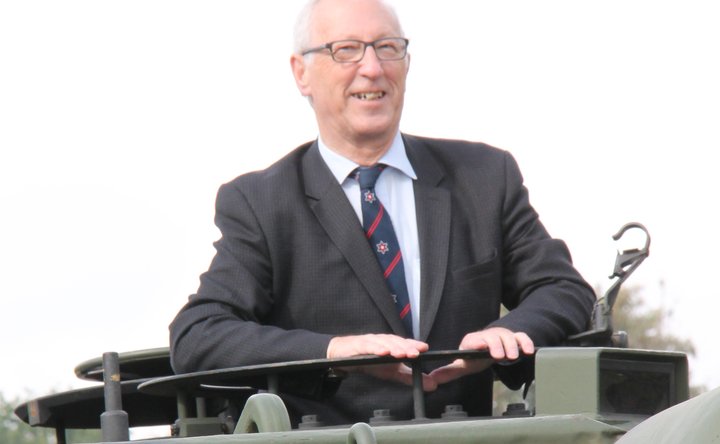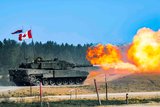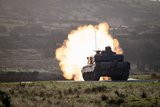Hungary to start fielding KF41 Lynx infantry fighting vehicle
Hungary is the launch customer for the Rheinmetall Lynx IFV and has opted for a two-person turret rather than a remote-controlled turret. (Photo: Rheinmetall)
Rheinmetall KF41 Lynx IFVs have started to be issued to Hungary’s 30th Mechanised Infantry Brigade with commander, driver and commander training systems also being supplied plus initial spares. All vehicles are scheduled to be delivered by 2030.
Under the terms of the contract awarded to Rheinmetall a total of 218 Lynx IFV and variants are being delivered. The first 46 came from the German production line and first deliveries of these occurred in late 2022.
Details of the programme’s progress were given by a senior officer of the Hungarian Army at Defence IQ’s International Armoured Vehicle conference last week.
Already have an account? Log in
Want to keep reading this article?
More from Land Warfare
-
![US DoD task force’s DroneHunter acquisition lays groundwork for Replicator 2 CUAS strategy]()
US DoD task force’s DroneHunter acquisition lays groundwork for Replicator 2 CUAS strategy
As the US Department of Defense looks to counter the growing threat of uncrewed aerial systems to improve homeland security, the DroneHunter acquisition could point to future commercial innovation.
-
![Norway opts for Hanwha’s Chunmoo for long-range fires under $2 billion deal]()
Norway opts for Hanwha’s Chunmoo for long-range fires under $2 billion deal
The selection of Hanwha’s K239 Chunmoo long-range precision fires system, with a contract expected to be signed on 30 January, makes Norway the second European country to choose the system. It is expected an operational system will be in service within four years.
-
![Layered protection: How air defence is adapting to rising drone and missile threats (podcast)]()
Layered protection: How air defence is adapting to rising drone and missile threats (podcast)
A surge in aerial threats – from advanced missiles to low-cost drones – is reshaping the way militaries approach air defence, driving demand for flexible, multi-layered solutions.






















